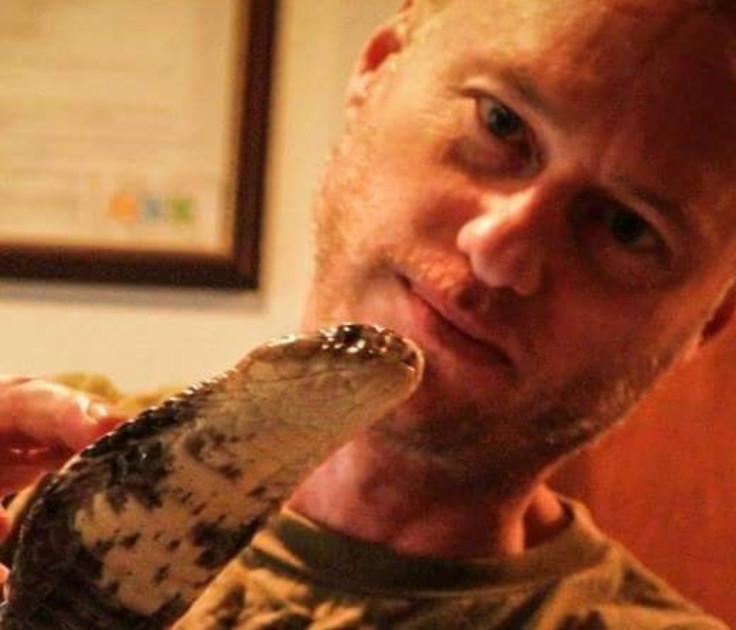Man Risks Life to Cure Snakebites By Being Bitten 200 Times, Makes 'Universal Antivenom'
Self-experimentation by Tim Friede may lead to new treatments that fight multiple snake bites worldwide.

A man has deliberately allowed himself to be bitten by snakes more than 200 times in a bold attempt to develop a groundbreaking treatment for venomous bites — risking his life to help save others. His remarkable quest could transform the global fight against snakebite fatalities.
The Man Behind the Bites
Tim Friede's story begins with a simple question: if he survived multiple snakebites, could his blood help others? Over nearly two decades, Friede deliberately allowed himself to be bitten by some of the deadliest snakes on Earth. His first bites were from a highly venomous Egyptian cobra and a monocled cobra, both at his home in Wisconsin. Neither was accidental; both were planned to build immunity.
Each bite was intensely painful, with Friede recalling the burning sensation as if his skin had been set aflame. After one particularly severe incident, he had to be airlifted to hospital and spent four days in a coma. Despite admitting that his method was reckless, Friede's goal was clear: to create a defence against venom, not just for himself but for others in need.
Building Immunity Through Self-Experimentation
For years, Friede underwent a process similar to vaccine development. He was injected with tiny doses of venom, gradually increasing the amount over time. His immune system developed a diverse collection of antibodies capable of neutralising toxins from more than a dozen different snakes, including black mambas, rattlesnakes, and coral snakes.
This self-immunisation meant that when he was bitten, his body could counteract the venom more effectively. Without such a gradual build-up, bites from these creatures could have been fatal. Friede's blood contains a vast array of antibodies that can recognise and combat venom toxins—an immune profile unlike any other.
From Blood to Breakthrough
Recognising the potential, researchers reached out to Friede after reading about his unique experience. They wanted to see if his blood could be harnessed to develop a new kind of antivenom. After obtaining a small sample, Glanville's team began work on a prototype treatment.
Their efforts led to a cocktail of antibodies, derived from Friede's blood, that can neutralise toxins from multiple snake species. In laboratory tests, just two of these antibodies combined with a drug successfully protected mice from lethal doses of venom from 13 different snakes.
The Promise and the Caveats
While promising, the new antivenom remains experimental. Experts like Andreas H. Laustsen-Kiel from Denmark's Technical University describe it as a proof of concept rather than an immediate fix. The current treatment targets three of the ten key toxin families found across venomous snakes, enough to advance to further testing.
Scientists are exploring ways to expand this approach, possibly developing a universal antivenom that could protect against many different venoms. The team is even considering trials with veterinary groups in Australia to treat snakebites in dogs, which could serve as a stepping stone before human trials.
Despite the breakthrough, the team is quick to emphasise that nobody should attempt to replicate Friede's experiments. His self-administered injections and exposure to venom were dangerous, with potential long-term health risks. Friede, now aged 57, remains healthy but keeps a close eye on his liver and kidney health—organ systems that could be affected by repeated venom exposure.
A Future with Better Treatments
Globally, snakebites cause an estimated 140,000 deaths each year, with countless survivors left with disabilities. Traditional antivenoms are costly and often species-specific, making quick treatment difficult in remote areas. The work with Friede's blood offers hope for a broader solution—a treatment that could work against multiple snake species with a single dose.
While the current prototype is still in the early stages, it demonstrates that broad immunity is possible. The ongoing research could eventually lead to universal antivenoms, saving thousands of lives and reducing suffering caused by snakebites. However, as Glanville cautions, his remarkable feat should be treated a scientific breakthrough and not a blueprint for personal risk.
© Copyright IBTimes 2025. All rights reserved.





















